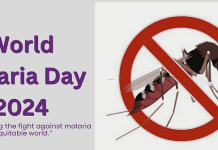… Says FG needs reorientation on R&D

In what would come as a disappointment to many Nigerians eagerly awaiting the production of an indigenous COVID-19 vaccine, following the approval of N10 billion by the Federal Government for same purpose, the Director General, Nigeria Natural Medicine Development Agency (NNMDA), Pharm. Sam Etatuvie, has said that the goal cannot be actualised in two years’ time.
According to him, despite the availability of human capacity, Nigeria has no structures in place to facilitate the production of a vaccine at the moment.
Etatuvie, who spoke with Pharmanews in an exclusive interview, also frowned at what he described as government’s discouraging attitude towards local inventions, saying such disposition would only keep the nation underdeveloped.
He cited the Pfizer and Moderna vaccines examples, noting that they were products of years of research ahead of the pandemic, an approach he said the Nigerian government needs to emulate.
Below is the full text of the interview:
COVID-19 has introduced a new normal order of running organisations across the globe. In what ways has your agency been affected?
Basically, we are a development agency. Our focus is on ethno-medicinal surveys, but due to restrictions in movement and issues of insecurity, our activities have been slowed down but we continue with our in-house product development.
One of our major jobs here is to train the practitioners to scale up product development and practice skills. We also train them on how to do documentation of their knowledge and raw materials. We normally go from zone to zone to conduct this training but the new normal prevented us and we did the training in-house last year.
We did two in-house trainings for herbs sellers. The essence was to encourage people to cultivate medicinal plants in order to have local raw materials readily available. Since medicinal plants have different species, there is need for a portal for identification of those species. At least, we were able to reach about 120 practitioners during our trainings last year.
As an institution for the development of natural medicines, how have you fared in developing local medicines for COVID-19?
As early as February last year, we produced our own natural sanitizer, which is 100 per cent natural. At a point, it was difficult getting the raw material for the sanitizer; so we looked inward to source local materials that have been proven to have certain bactericidal properties for the sanitizer and we got it done. We exhibited it at the Science and Technology Expo last year, and it received a lot of support from many participants. At this level, it is ready for commercialization. And we are reaching out to possible institutions or business owners who will be interested in marketing it effectively.
We were also able to research into a medicinal plant to develop our own local syrup called Kloviron. We have done all the necessary tests that have confirmed that it has real potentials to prevent COVID-19. We even presented it to the committee that was set up by the Minister of Science and Technology and we provided all the information required by them. They also confirmed that it has potentials and promised to support the product but we are still waiting for their support.
What are the differences between your natural sanitizer and the imported ones?
The difference is clear, as we concentrated on using our indigenous medicinal plants. Most of the raw materials used for hand sanitizers are imported, such as Isopoponel, cadomal, pharmaceutical grade alcohol, etc. With the spike in dollar exchange rate, they became more expensive. So we resorted to using our indigenous alcohol that you can test to know its equivalent standard to the pharmaceutical grade alcohol and once that quality is derived, it is comparable to imported alcohol, and good for our use.
That way, we promote made-in-Nigeria products and the colour green is obtained from the aloe vera gel that we have in abundance here. It is 100 per cent local sanitizer. Instead of depending solely on imported materials, we can use our indigenous plants. This is a clear alternative to the imported ones.
In terms of pricing, at the laboratory level, it’s a bit higher in price, but when it gets to commercialisation level, it will be cheaper because there is no importation of materials involved. From the comparative analysis done, it shows that it competes favourably with others manufactured by pharmaceutical companies here.
Has any staff of the agency tested positive to COVID-19?
It is categorically no, because aside from government’s safety protocols, we encourage our staff to take our syrup as a prophylaxis, as it helps to build immunity. It has higher antioxidant properties. We have not taken it for commercialisation because we are still with NAFDAC for listing.
Is there any possibility of developing a vaccine from our indigenous medicinal plants?
I don’t think we have the capacity to produce a vaccine now; anybody can prove me wrong. We might have some human capacity but there is no structure for that in the country. It was just recently that the Federal Government mentioned that N10 billion will be released for vaccine purpose.
We have a vaccine facility in Yaba over these years; why hasn’t it been overhauled for this purpose? And since February 2020 when the index case came into Nigeria, why was not this N10 billion released since then? Now, this N10 billion will be first of all used in improving the facility on ground. In the next one to two years, there can’t be a Nigerian-made vaccine.
It is a question of priority, as far as I’m concerned. I think we were more interested in building isolation centres at the initial stage than getting vaccines. We needed to have done those things pari passu. Besides, many of us that came up with products and seeking for assistance were not listened to.
These efforts from our agency haven’t got any support from government; we did them from our own pockets. Even when the Madagascar syrup came, we were one of the agencies that were given the syrup to analyse and after the whole exercise, nothing was given to us.
For me, there is absolute need for us in this country to change our orientation in things that concern Nigeria. It may interest you that this Moderna and Pfizer vaccines were work-in-progress for the past six year before the pandemic erupted. So when the outbreak occurred, they went back to their archives to see what they had at hand. That is how researches are done.
Even if institutions are deficient of facilities, how well have we identified local manufacturers in the country that may have the capacity to come up with something substantial? A lot of professors here have come up with formulas but nobody listens to them.
I know that one of our agencies, LASEMI, came up with the invention of a ventilator. After the announcement, nothing has been done to the equipment till date. I recall that Innoson Motors’ CEO also mentioned a formula he had got but nothing is heard of it again. We didn’t even give them an opportunity to try their invention; we just have this attitude of not believing in ourselves, until someone comes from abroad to provide a solution for us.
Unless government changes its approach to research and development, we may not get anywhere.
Federal institutions like NIMR, NAFDAC and others have been collaborating with the NCDC in the fight against the spread of the virus, but your institution has been somewhat silent. Why is this so?
Yes, for NCDC, we haven’t collaborated with them, as we believe in letting our works speak for us. By the time these works are completed, we can collaborate more with the NCDC. Our own approach is different because we report directly to the Ministry of Science and Technology, as we are not existing in isolation. NIMR has been existing for a long while but it’s more of our approach.
We also did public enlightenment programmes for people on how to build their immune system. We did something on aroma therapy which is one of the indigenous ways of building up your immunity. If you also care, you would have heard that if you can inhale steam, it kills the virus. We did the first one which we circulated on TV and social media.
Ginger, garlic, garcinia kola and lemon tea has been recommended as preventive syrup for the coronavirus, but some have countered the effectiveness of the preparation. What is your take on this?
There is copious scientific information published in highly rated peer review journals that these plants have basic properties constituents that can take care of the infection. They have antiviral properties, anti-infective properties, anti-toxic properties, and are immune boosting. All of them have been proven to be effective.
Any true scientist in this sector cannot come and disprove that they are working. We know that these things are working but what is critical is to convince others that they are working. The first step is to finish all your formulation, do all your safety analysis, and meet all your NAFDAC requirement. Once NAFDAC gives you listing, it means at least people can use the procuct.
Let me ask you one question, with all these stay-at-home rules, what should people be doing? Self-isolate to do what? We don’t have formulations used in the isolation centres but they need prophylaxis to use. If we are sincere to ourselves, some enlightened people who had tested positive to the virus came out to say, “I used A…B…C.”
The only thing I can do if you come to me as a pharmacist is that I will give you an extemporaneous formulation but if we want to put it in public domain, then I will put it out for clinical trials, and that is not done in a day or two time; it takes time. Even the vaccine didn’t go through complete clinical trials and they were given emergency approval due to the pandemic and they say it is 95 per cent safe. There is no drug that is completely safe, even your paracetamol.














buy cheap prescription drugs online buy prescription drugs online without
tadalafil online: http://tadalafilonline20.com/ tadalafil gel
outstanding post, i love it